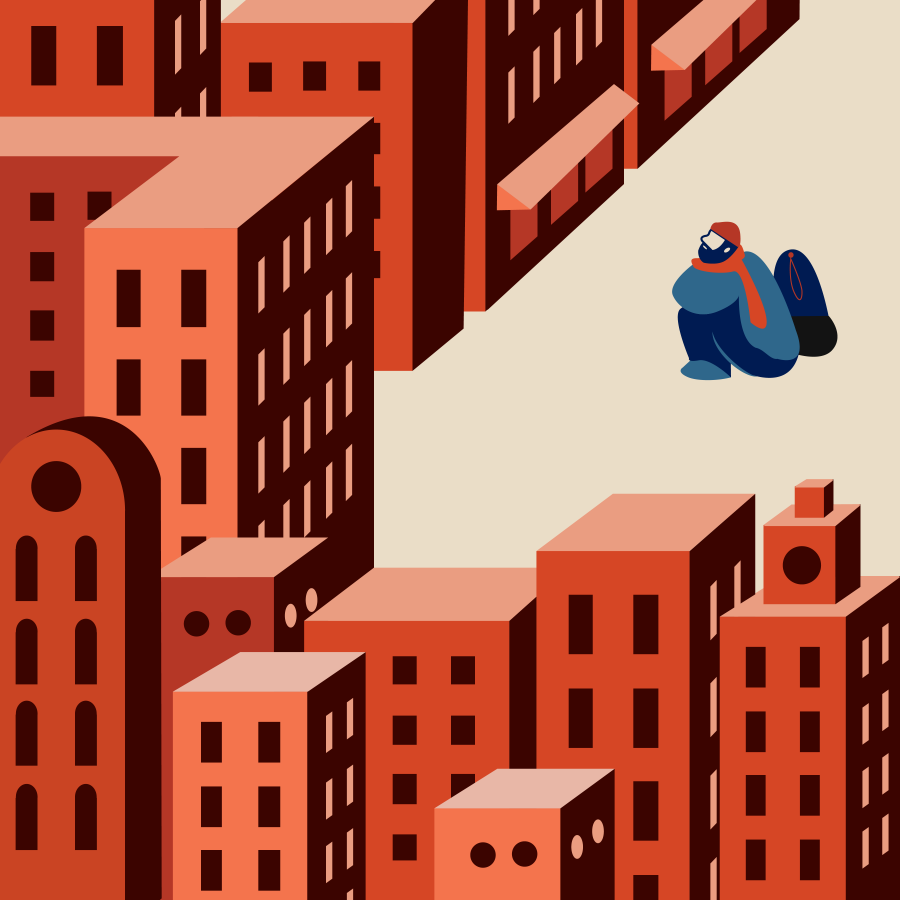“Perhaps the single most significant attribute of homelessness is its visibility.”
Joel Blau wrote this in “The Visible Poor: Homelessness in the United States” in 1992 because when homeless people are made overly visible — they lack the privacy that four walls and a roof provide to the rest of us.
Our unfiltered view of homelessness can let us empathize and connect with people who’ve lost housing, but it’s also often at the core of how we mistreat them. We try to make them invisible because seeing them discomforts us. Instead of forcing them off some streets and onto others or into holding cells, we should help people suffering from homelessness get four walls and a roof by providing them with resources and support.
“Our city (has) spent 23 years of taxpayer dollars on policing, ticketing (and) sending people to court and jail because they were trying to sleep,” said Valerie Romness, director and editor of Austin’s Challenger Street Newspaper. “And we actually caused the homeless problem to get big by doing that.”
On July 1, restrictive ordinances on Austinites suffering homelessness were loosened. However, partly as a result of public backlash since then, increased restrictions are currently being considered by the
Austin City Council.
“Since the ordinance was passed in July, after one week I noticed that people on the street were more rested, their cognitive abilities went up, and they seemed to have less mental health issues,” Romness said. “(People) didn’t have the fear of (being removed). … Now (they) can sleep through the night. … If you don’t sleep night after night after night, month after month, your brain doesn’t work too good, so you can’t function” — something many college students have experienced.
Mayor Steve Adler and council members Greg Casar, Kathie Tovo and Ann Kitchen have said their goal is to house as many people as possible. It remains to be seen whether or not the council is sincere and capable of improving the conditions faced by all Austinites suffering homelessness.
But until the predicted long-term improvements are achieved, our neighbors who’ve lost their homes will have to continue living on the streets. They’re falling through the cracks in the city’s plan, so it’s our responsibility to be there to catch them.
Vaudia Vontineaux, a Challenger contributor who has lost housing, suggests that instead of handing out a few dollars, we should provide people suffering homelessness with material and psychological support through long-lasting solutions. Both material needs and community have to be provided to fundamentally and lastingly improve people’s lives.
“If you would like to help somebody, study and call some of these places,” Vontineaux suggested. “Then, when (somebody) asks you for assistance, you’ll know where to (direct) ‘em (for lasting help).”
“Your right to avoid discomfort does not outweigh people’s right to have rest,” Romness said.
Visibility is a “significant attribute of homelessness” because it makes people who’ve never lost housing feel discomfort. But, it can also help us to feel that crucial sense of community Vontineaux describes.
We can feel it when we acknowledge that homeless kids, dropped from foster care programs into homeless adulthood, need support systems and housing just like college students do.
We can feel it when we acknowledge that we’re all neighbors — some of us have just lost their homes, but we’re all still in the same neighborhood.
It’s impolite to try to avoid your neighbors, so be neighborly.
Rathi is a Black Studies senior from Austin.





















